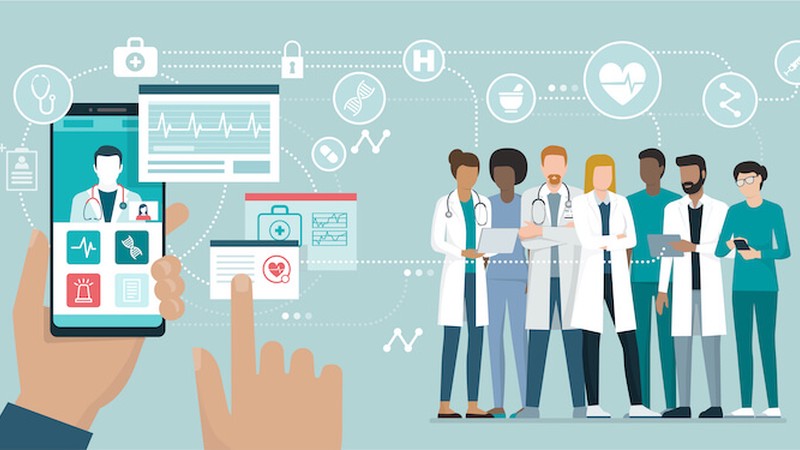The healthcare industry is known to generate a significant amount of data every day but fails to convert data into clear perceptions that can enhance the patient outcomes and functional efficiencies of hospitals and medical care. The incorporation of data analytics into the healthcare industry focuses on helping to overcome the challenges associated with a wide array of data-driven applications. The precise, data-driven forecasts in real-time by Ikigai Labs help healthcare professionals respond to situations faster by changing the whole landscape of the industry.
Clinical data analysis and improving medical research
One of the primary benefits of data analysis application is improving research techniques in several health-associated areas by acquiring and analyzing clinical data from multiple sources. The vital resources of clinical data include public health records, personal health records, electronic medical data, EHRS, and so on.
Public health records are considered one of the most efficient resources of health data for research. Moreover, personal health records focus on the health management of patients as they maintain the history of their medical records. Electronic medical data only includes information from the patient charts created in hospitals, medical offices, clinics, and other medical facilities. Finally, EHRs consist of medical images, treatment plans, diagnoses, test results, etc., of patients in digital formats. Such data is easy to share but needs to follow the regulatory and privacy compliance policies.
Enhancing outcomes of healthcare for patients
The focus of a quality healthcare setting is to provide patients with a treatment plan that is safe and effective with minimal trauma. To attain the goal, healthcare providers need to collect and analyze more patient data in real-time. This helps to understand the complex healthcare landscape and thereby execute a systematic approach to patient healthcare outcomes.
When patient data is analyzed by Ikigai Labs, healthcare providers can significantly eliminate or reduce errors and easily recognize at-risk individuals. The different types of patient data considered for such analysis include the test results for blood sugar level, total blood count, body temperature, and also the individual desire for treatment care of the patients. Healthcare professionals face obstacles in acquiring timely patient data access. Getting overwhelmed with large patient data sets is natural, which affects the quality of services. Thus, qualitative assessment of patient data is vital, and data analytics plays a major role.
Understanding operational perception
The organizational infrastructure and work operations of healthcare providers can determine the quality of patient care and also the positive patient outcomes. This demands the collection and analysis of healthcare provider data associated with complex healthcare structures, processes, and the overall environment. The improvement in the efficiency of patient care begins with the analysis of the current practice of the healthcare provider and its strategies for improvement.
Ikigai Labs data analytics helps to benefit the operational areas of healthcare providers like financial and administrative management, employee scheduling and charting, preparing for emergencies, and considering compliance. Some approaches that help a healthcare provider improve its operational efficiency and maintain a high standard of patient care are:
- Reducing waste by focusing on proven clinical practices, and procedures, preventable injuries and deaths, and the right treatment care.
- Utilizing data analytics on understanding and thereby improving the use of advanced technologies by eliminating the cost and time.
- Application of analytics to better handle the demands for increasing hospital beds and other healthcare resources.
- Implementation of data-driven healthcare functions to sustain better patient care outcomes.
Enhanced healthcare staffing
When data analytics is used in healthcare business management, it identifies issues related to staffing, recruitment, hiring, training, and retaining healthcare professionals. There has to be a balance so that the patient care outcome is not hampered despite the increasing shortage of qualified healthcare professionals. Studies show that almost 65% of hospital budgets include labor expenses, and the rising demand will drive wages even higher in the future.
Data analytics is applied to handle labor expenses in the healthcare landscape and also enhance patient care quality. The real-time insights help to make efficient staffing decisions and improve the quality of patient care outcomes. The use of automated solutions helps healthcare providers manage their schedules and every employment-associated resource.
Conclusion
The effect of data analytics on the healthcare industry brings differences in the potential of healthcare providers to provide top-notch patient care efficiently. The role of data analytics in Ikigai Labs enhances patient care outcomes and healthcare processes.




